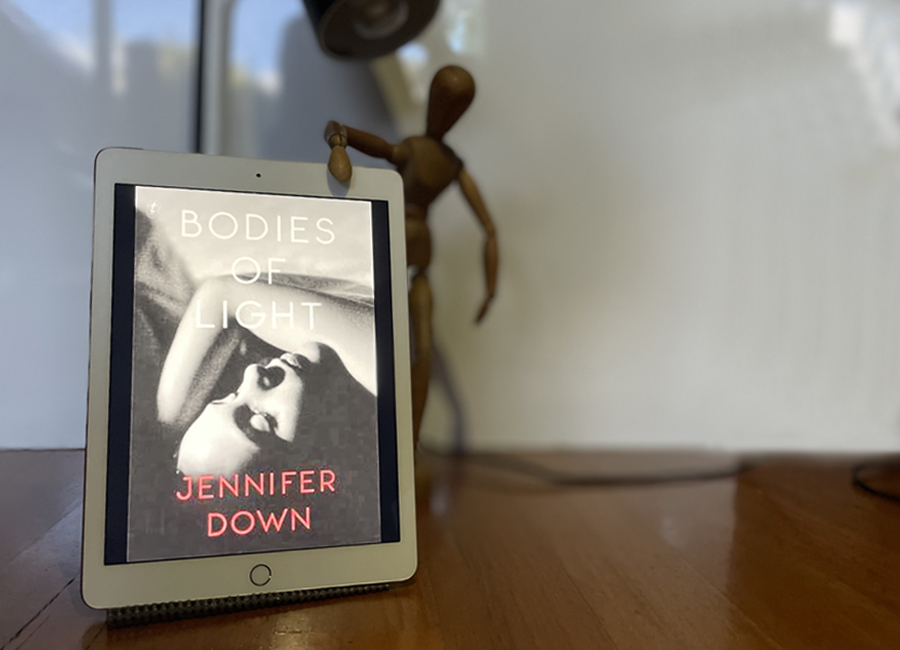|
Published by Text Publishing September 2021 | Fiction After a light, breezy read? Well, best not to reach for Jennifer Down’s Bodies of Light.
It really is draining, harrowing at times, yet impossible to put down. Narrator Maggie Sullivan is dealt such a distressing hand of life cards that you feel compelled to keep turning every page of this epic novel, propelled by a mix of intrigue as to what new trauma may be ahead, and hope for some eventual respite. Although there were some moments of light – even humour, for the most part Maggie barely hangs on to her existence. And the saddest part of all is that, although fictional, the novel’s well-researched Melbourne-based author has anchored her narrative on circumstances that could well be true for many young Australians who enter the out-of-home care system. The novel traverses Maggie’s full life, from her days as a toddler in 1970s Victoria through to her present in 2019 in the US, each chapter weaving between past and present. Her earliest fragmented childhood memories, so beautifully captured by Down, make it clear that Maggie’s life was never going to be easy. Born to drug-addicted parents, her mother died from an overdose when Maggie was two. By age four she’d been sexually abused by an ‘uncle’ for the first time. By age six her adored father had gone to prison, where he later died, and she found herself in the first of a long string of foster care homes and institutions. Some of the homes were safe enough, but most were not, leading to further abuse and a growing sense of abandonment. When Maggie did stumble upon people who cared, connections soon broke as Maggie’s will for self preservation meant she kept to herself, prompting those she held close to drift away. As she finishes high school, it seemed Maggie’s vagrancy may have finally ended, although this was shortlived. The trauma kept coming, evenutally compelling her to run away and start over, stepping into a whole new identity in a new country to bury her painful past, all the time figuring out how to ‘not remember’ which, as Maggie points out, is very different to ‘forgetting’. Yet the memories follow her, manifesting in deep, heartbreaking grief. As punishingly bleak as that precis sounds, Bodies of Light provides a beautifully crafted narrative told through the authentic, complex voice of Maggie – alternating between sharply funny, naivly observant, overwhelmingly sad, frustratingly sensible and nonchalantly smart. Down is pragmatically critical of state run institutions that fail children. But I felt the real insights in this novel come from Down’s exploration of what it might feel like to have such a completely rudderless life, with no trace of your own past – no records, no shared memories, no possessions, no witnesses to your development. It’s not something many people experience so totally as Maggie, but it sure gives you a sense of how much of a ghost you must feel in your own skin. And although it was draining, this epic is a worthy winner of this year’s Miles Franklin award. Comments are closed.
|
Categories
All
Archives
May 2024
|

